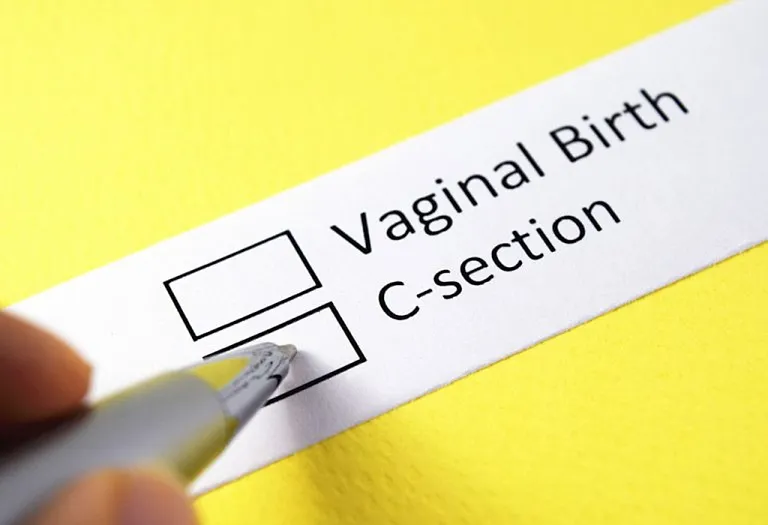Can Stress Cause Preterm Labour? Risks & Prevention
Nine months of careful consideration generally follows the good news of a baby-to-come in the family. Whether it is food, health or language, people are extremely cautious to provide the best for their baby. But what do you do about the things you can’t control. Stress is one of the most unwelcome aspects of one’s life, especially while they’re supporting another life. Theories suggest that stress not only affect the health of both mother and child but also can also affect the labour cycle. Can stress cause you to go into labour? That’s the central question, and the following article will explain everything about stress and preterm labour.
How to Identify Stress and Its Effects on Pregnancy
Wondering what the effects of stress during pregnancy are? To understand what repercussions the stress of a mother-to-be can have, one must understand what stress is and how it affects your body. When a woman goes through stress, the body releases stress hormones called cortisol (1). The increase of cortisol can be the cause of hypertension, diabetes and even cause a miscarriage, among other unfortunate consequences.
There are two categories of stress: Acute and Chronic (2). Acute stress refers to the kind that is temporary and doesn’t cause the body to react for very long. A tiff with a relative or an upcoming presentation can lead to acute stress. Chronic, on the other hand, refers to ongoing external problems in the woman’s life that can affect the body maliciously over time. The passing away of a close one or involvement in a prolonged court case are examples of scenarios that cause chronic stress.
Although there has been no proof of stress directly affecting the change in labour, it does take a physical toll on the body, which in turn, might affect the labour process. But the question to ask is- Can stress cause premature labour?
Acute stress does not affect the body to a large extent. However, chronic stress can create fake contractions, also known as Braxton Hicks contractions.
How to Reduce Stress During Pregnancy
In addition to a healthy diet and a regular sleep cycle, some measures can be taken by a pregnant woman to ensure that she remains calm and avoids stress while carrying the child (3).
1. Meditate
A moment away from the responsibilities and duties of daily life, one of the best ways to calm oneself down is to sit in one place in a comfortable position and take deep breaths. One can play soft music in the background to further create a serene environment. Ocean sounds or rain sounds are popularly known to create a calm, stress-free zone.
2. Visit a Counsellor
Professional help can never go wrong. A trip to the counsellor may help get things off one’s chest and get expert advice on how to deal with the situation, especially with the child on the way.
3. Journal thoughts
Penning down one’s feelings is one of the best ways to review and analyse a situation. It helps one vent without feeling the need to be politically correct or moral. It is one of the rawest forms of expression. Journaling thoughts is an excellent way for a mother-to-be to jot down what bothers her and pour out her emotions when required.
4. Use Epsom Salts
Famously known to melt away problems, baths with Epsom salts help get some time alone and relax in the water. Epsom salts contain magnesium and sulphate that get soaked into the skin and help relax the nervous system and ease muscle strains.
5. Exercise With Yoga
While physical training might be strenuous and not recommended while carrying a child, yoga might be a great way to exercise to avoid too much pressure on the body. However, talk to your obstetrician before taking up any exercise, including yoga.
6. Plan and Budget Ahead of Time
A lot of the stress faced by a woman during the later years of pregnancy occurs due to financial constraints and disorganised, loose plans. Planning and budgeting for the future in the earlier months of pregnancy helps prevent avoidable mistakes later.
7. Laugh
Even though laughing may sound a little absurd in a stressful situation, it is a proven fact that it helps reduce stress. It decreases stress hormones and releases endorphins in the body that help calm the body. So, grab a tub of popcorn and binge-watch the best of comedy.
How Does Reducing Stress Lower Preterm Birth Risk?
Managing stress during pregnancy can significantly lower the risk of preterm birth. Keeping stress levels in check benefits both the mother’s well-being and the baby’s development, creating a healthier pregnancy overall (4).
1. Supports the Mother’s Physical Health
Reducing stress helps regulate the immune system, maintain stable blood pressure, and ensure the body can focus on nurturing the pregnancy (5). This fosters an optimal environment for the growing baby.
2. Balances Hormones & Lowers Risk Factors
Keeping stress hormones like cortisol in check helps prevent inflammation and premature uterine contractions—both of which can trigger preterm labour (6).
3. Promotes Healthy Fetal Development
Lower stress levels are linked to better fetal growth and a reduced likelihood of early delivery (7). Babies born to less-stressed mothers tend to have healthier birth weights and fewer complications requiring neonatal care.
FAQs
1. Do certain types of stress (work vs. relationships) pose higher risks?
Psychological stress (e.g., anxiety, depression) and socioeconomic stress (e.g., financial strain) show stronger ties to preterm birth than physical stress (e.g., moderate exercise). Emotional stressors may trigger more sustained inflammation and hormonal disruptions.
2. Does stress affect the placenta’s ability to prevent early labour?
Yes. Chronic stress may weaken the placenta’s protective role by increasing inflammation and oxidative stress. This can disrupt hormone regulation (like progesterone, which sustains pregnancy) and contribute to premature cervical changes or contractions.
3. Can a mother’s stress alter the baby’s stress response later in life?
Emerging research suggests that high maternal stress (via cortisol crossing the placenta) might “program” the baby’s stress system to be hyperreactive, raising their risk of anxiety or metabolic issues—but this doesn’t always mean preterm birth. The link is still being studied.
By adopting stress-reducing habits such as mindfulness, gentle exercise, and strong social support, expectant mothers can take proactive steps toward a full-term, healthy pregnancy.
Pregnancy has a lot of complications. Stress can only add to that, which is beneficial to neither the mother nor the baby. Hence, all one can do is stay calm and take up different activities to avoid any tension and maintain a favourable environment for mother-child.
References/Resources:
1. Cleveland Clinic – Cortisol
3. Society of Behavioral Medicine – How to Manage Stress Naturally During Pregnancy
4. NIH – Will stress during pregnancy affect my baby?
5. National Library of Medicine – Immunology of Stress: A Review Article
Also Read:
Ways to Prevent a Preterm Labour
Premature Baby Health Problems
Common Causes of Premature Birth
Does Progesterone Help To Prevent Preterm Labour?
Was This Article Helpful?
Parenting is a huge responsibility, for you as a caregiver, but also for us as a parenting content platform. We understand that and take our responsibility of creating credible content seriously. FirstCry Parenting articles are written and published only after extensive research using factually sound references to deliver quality content that is accurate, validated by experts, and completely reliable. To understand how we go about creating content that is credible, read our editorial policy here.






































